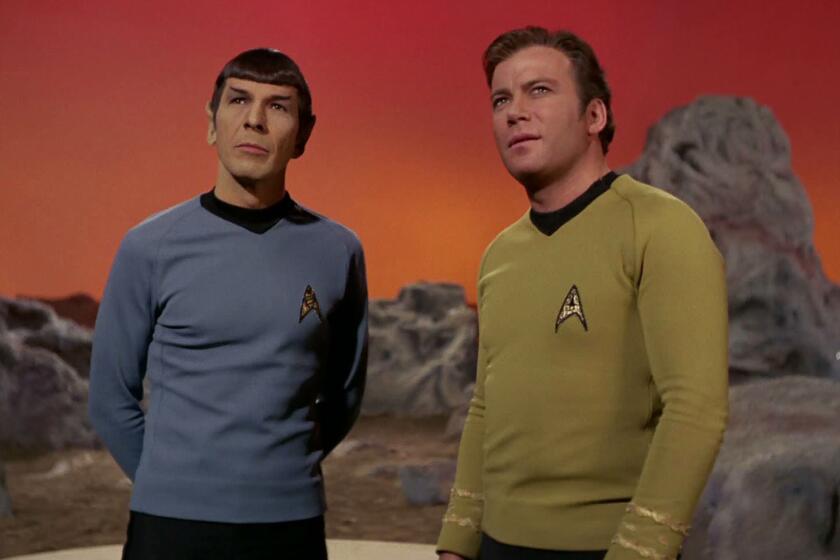NetNoir: Substance With Style
On-line services are cool, until the novelty wears off.
After you discover you can chat with people from all over the world, you realize the conversations generally range in topics from teen sexuality all the way to adult sexuality.
The access to informational sources, such as encyclopedias and almanacs, is wonderfully handy, but certainly doesn’t go beyond what can be found at your local library. (Actually, in these days of funding cutbacks for such frills as libraries and schools, this aspect of on-line life is getting more critical.)
The main component missing from commercial on-line services, so far, is intriguing, original content--stuff that can be found nowhere else.
Finally, a site has arrived that is not only full of entertaining, provocative, easily accessed reading matter, it also has the best name in cyberspace--NetNoir.
It’s the first product of the Greenhouse Program, initiated earlier this year by America Online to provide an on-line home and funding for entrepreneurial groups with new ideas for interactive services.
NetNoir focuses on Afrocentric culture, which in the words of E. David Ellington, president of the San Francisco-based group that created the service, means “virtually (pun intended) anything to do with, written about, coming from or influenced by African culture. This includes literature, music, the arts, etc.”
You get to the service, which debuted earlier this month on America Online, by choosing keyword on the AOL menu and then typing in NetNoir. Up pops a screen that is pleasantly designed, if not revolutionary. As NetNoir co-founder Malcolm CasSelle explains in a short introductory essay, the group had considered incorporating a graphic of an island or other landscape into the interface, but eventually realized a straightforward approach would be far more serviceable. (Take note, you cyberspace designers who get caught up in cleverness and lose us users in a font/graphic forest.)
NetNoir is divided into four main areas--music, sports, education and business--with more to come later. A look at the music section points out the service’s strengths and shortfalls.
There is an evocative review by resident critic Greg Tate of an album by the English group Tricky, which Tate describes as sounding “like Barry White doing a Tom Waits remix project.” The only problem with the review was that it was far too short--I wanted more of Tate.
(Also, there were many punctuation errors, but they were probably due to first week jitters.)
The review is followed by a wonderful, introductory essay to an upcoming series of pieces about black performers in opera. It’s written by baritone Nmon Ford-Livene.
The most disappointing part of the music section is the “Artist Profiles” of numerous soloists and groups. For the most part, they read as if written by the performers’ publicists.
The sports section introduces a commentary and news column by athlete Carl Lewis and writer Jeffrey Marx.
They win me over right away by declaring what they will not be writing about.
“If O.J. is ever again mentioned here, we do not mean Kato’s friend. We mean orange juice.”
Time will tell if the column by sports lawyer Frank K. Wheaton, who refers to himself as one of the “super-agents,” will provide true insights into the behind-the-scenes sports world, or just more self-serving, name-dropping fluff.
One truly nice feature is the multiple-choice sports quiz, which has as its first question:
How many African American jockeys have competed in the Kentucky Derby? (The answer will be included in the second installment of the quiz).
Finally, over in the education section, there is an introduction to a three-week “mini-course” on the subject of education in the African American community.
Written by Gail C. Christopher of the Howard University School of Divinity, it’s more essay than traditional school lesson.
But it’s certainly one of the best-written pieces I’ve come across in cyberspace, and like much of NetNoir, it left me wanting more.
If NetNoir continues on this path and explores topics in more depth, it will surely be a model for how cyberspace can wrest itself out of adolescence, grow up and get a far richer life.




